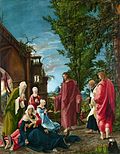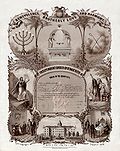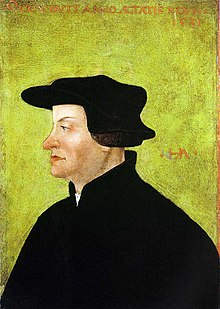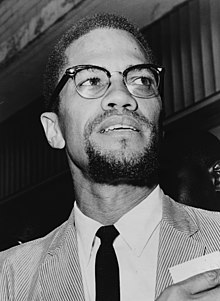The Religion Portal
Religion is a range of social-cultural systems, including designated behaviors and practices, morals, beliefs, worldviews, texts, sanctified places, prophecies, ethics, or organizations, that generally relate humanity to supernatural, transcendental, and spiritual elements—although there is no scholarly consensus over what precisely constitutes a religion. It is an essentially contested concept. Different religions may or may not contain various elements ranging from the divine, sacredness, faith, and a supernatural being or beings. (Full article...)
 Vital article
Vital article
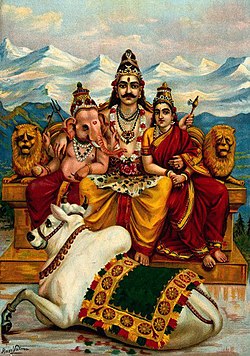
A deity or god is a supernatural being considered to be sacred and worthy of worship due to having authority over some aspect of the universe and/or life. The Oxford Dictionary of English defines deity as a god or goddess, or anything revered as divine. C. Scott Littleton defines a deity as "a being with powers greater than those of ordinary humans, but who interacts with humans, positively or negatively, in ways that carry humans to new levels of consciousness, beyond the grounded preoccupations of ordinary life". (Full article...)
 Did you know (auto-generated)
Did you know (auto-generated)
- ... that religious studies scholar C. Jouco Bleeker believed that religions are like acorns?
- ... that across his thirty-six collections, fashion designer Alexander McQueen contemplated religion, told fairy tales, and criticized the fashion industry?
- ... that Musa va 'Uj depicts figures from all three Abrahamic religions?
- ... that the author of the comic book Timeless Voyage was the leader of a UFO religion?
- ... that the capital of South Ossetia once had more Jews than Ossetians?
- ... that Catherine de Parthenay, a 16th-century Huguenot leader, was a member of "a highly successful network of information" during the French Wars of Religion?
Huldrych or Ulrich Zwingli (1 January 1484 – 11 October 1531) was a Swiss Christian theologian, musician, and leader of the Reformation in Switzerland. Born during a time of emerging Swiss patriotism and increasing criticism of the Swiss mercenary system, he attended the University of Vienna and the University of Basel, a scholarly center of Renaissance humanism. He continued his studies while he served as a pastor in Glarus and later in Einsiedeln, where he was influenced by the writings of Erasmus. During his tenures at Basel and Einsiedeln, Zwingli began to familiarize himself with many criticisms Christian institutions were facing regarding their reform guidance and garnered scripture which aimed to address such criticisms. (Full article...)












